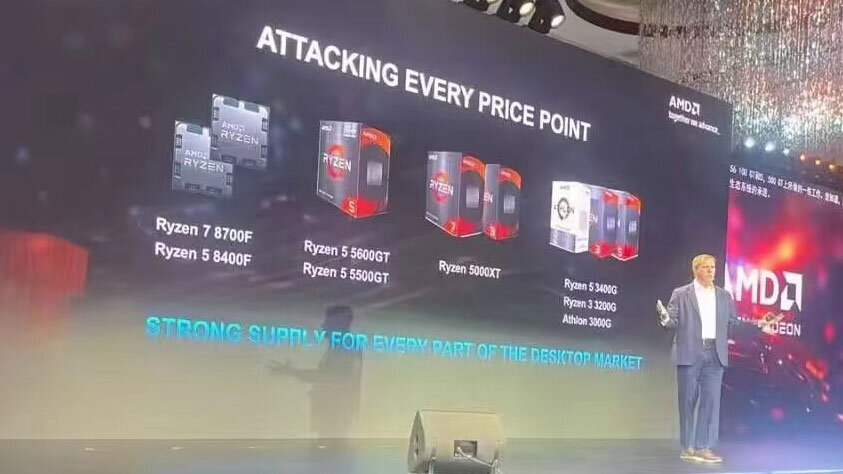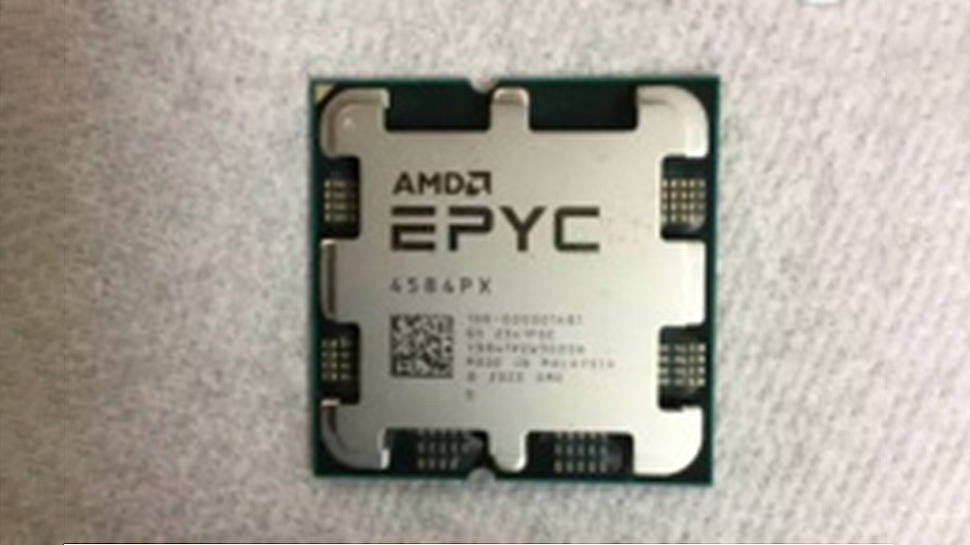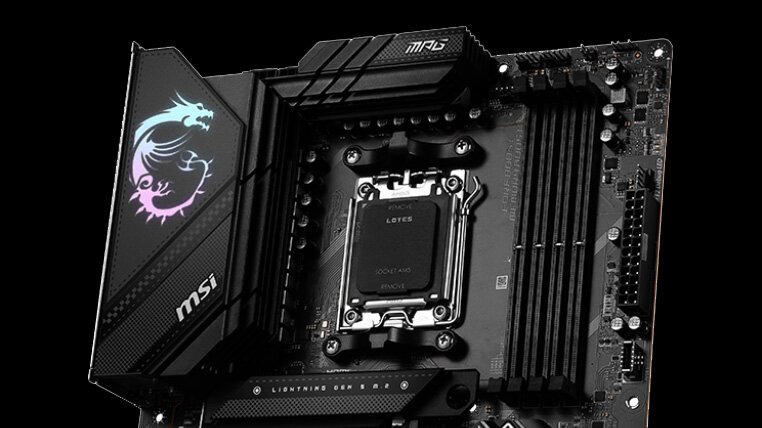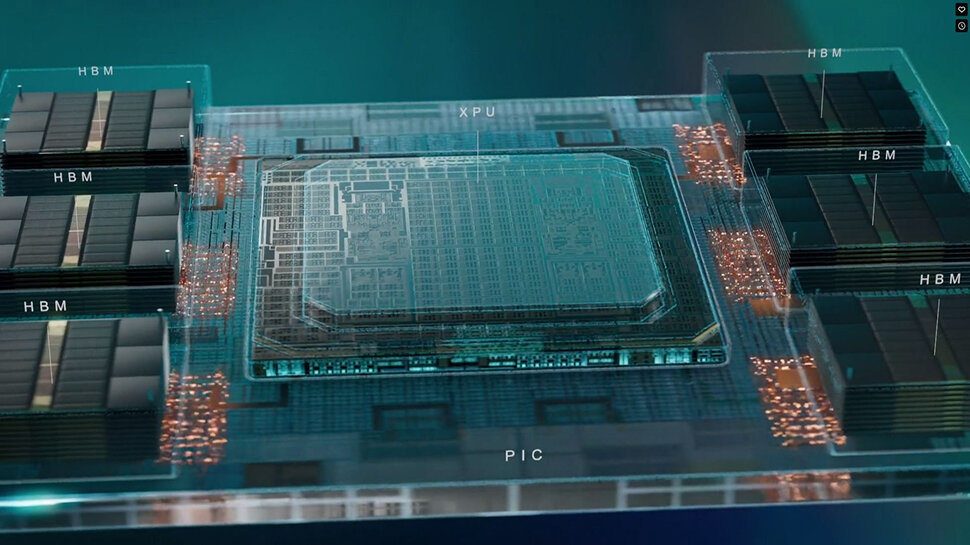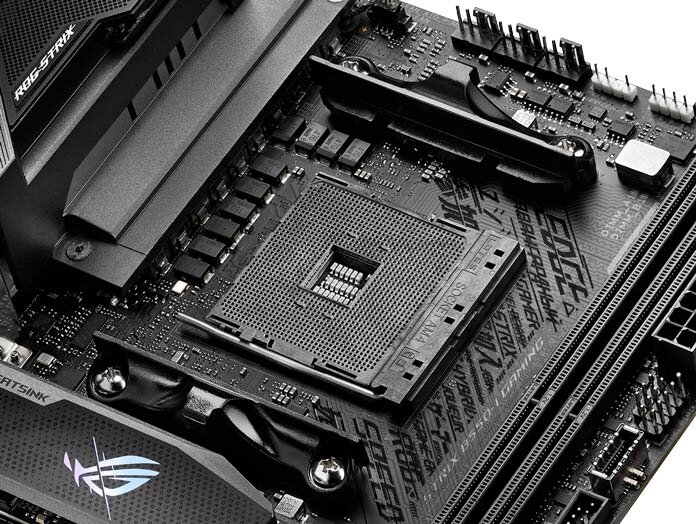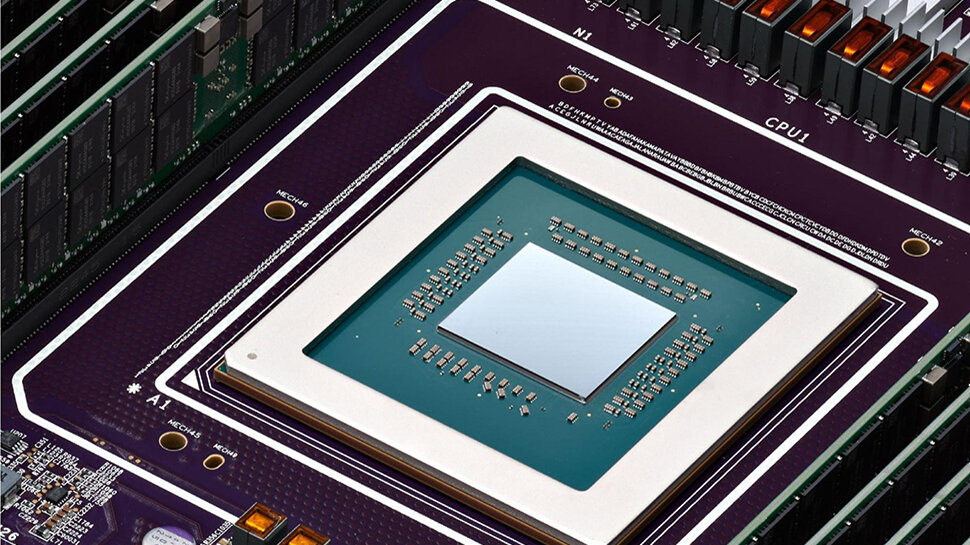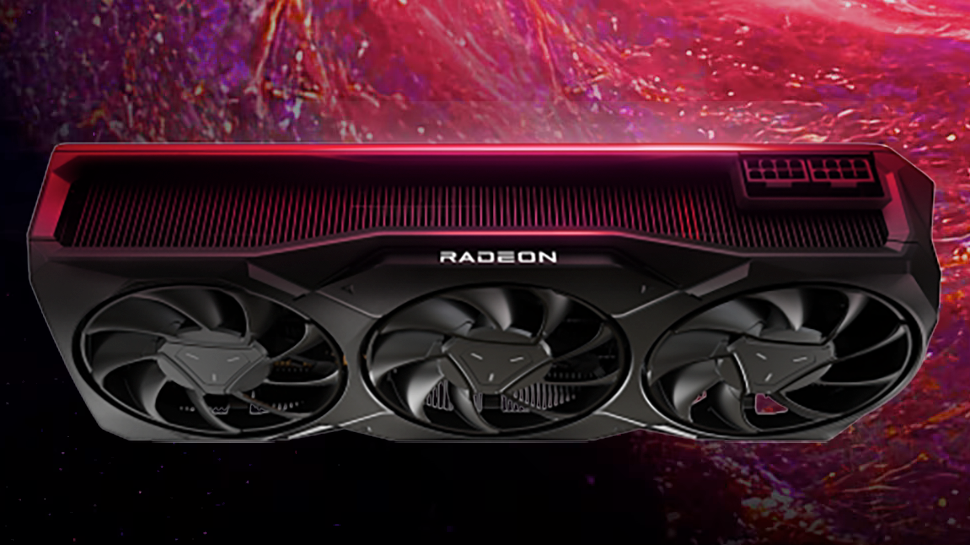Search the Community
Showing results for tags 'amd'.
-
MSI is focusing pretty much on Nvidia’s graphics cards, it would seem, and has more or less stopped making AMD GPUs. Or at least the amount of MSI’s Radeon graphics cards on shelves has dwindled considerably, to the point where it’s been noticed by several sources – one of which contacted MSI and got an official response from the board maker. Did I miss this story? MSI has been completely removed from AMD's Radeon 7000 series, all existing products have been discontinued and they never released a 7700 XT/7800 XT. This all seems to have happened very quietly.April 26, 2024 See more Hardware Unboxed flagged this up on X (formerly Twitter), but it was German tech site Hardware Luxx (via VideoCardz) who contacted and heard back from MSI. The manufacturer stated: “When it comes to graphics cards, our focus at the moment is actually more on RTX cards. Nevertheless, the collaboration with AMD is essential and extremely relevant for us. We see a very positive development, particularly in the area of mainboards.” So, while that is hardly a declaration of abandoning Radeon GPUs – the wording is about ‘focusing’ more on Nvidia graphics cards, rather than wholly on Team Green’s GeForce range – it’s pretty obvious where MSI’s priorities lie. That’s made clear enough if you look at the listed cards on MSI’s page for its Radeon RX 7000 models, of which only three are now present (an RX 7600 model, plus a 7900 XT and 7900 XTX). As Hardware Luxx points out, a German price comparison site only lists an RX 7900 XT Gaming Trio as on sale from MSI’s line-up of RDNA 3 GPUs. We popped onto Newegg to see what MSI Radeon products the retailer is currently offering in the US, and there’s just one – again an MSI Gaming model, but this time an RX 7900 XTX. Still, the point remains that this is the sole model on sale. Analysis: Being diplomatic – but don’t worry about mobos It seems clear enough that MSI is running down production of RX 7000 models, then, and the statement from the firm backs that up. To state that its focus is “more on RTX cards” feels like a diplomatic stance on the matter, when clearly MSI’s plans are now very skewed towards Team Green. Indeed, we saw clues to this when AMD launched its RX 7800 XT and 7700 XT GPUs to fill out the mid-range of RDNA 3, and MSI was noticeably absent from the list of launch partners – and never did produce boards based on those graphics chips. MSI was also slow off the mark with RX 7900 launches way back, too. MSI was once a substantial backer of Radeon GPUs, but that no longer appears to be the case, and its attention has all but entirely shifted to GeForce RTX graphics cards. Can we expect that RTX 5000 models will be the only ones made by MSI, and RX 8000 (RDNA 4) may be entirely left by the wayside? It looks like this is a possibility that can’t be discounted. For those worrying about MSI’s motherboard support on the AMD side, there’s no need to fret, as this doesn’t affect the hardware maker’s efforts in that respect. That’s clarified in the above statement and the reference to mainboards, another term for motherboards, with MSI talking about this in a wholly different way, mentioning a “very positive development” in that particular area. Which we’d read as PR-speak for ‘business as usual’ of course. You might also like The best cheap graphics cards out thereTop gaming PCs: great rigs for serious PC gamingBest PC games of 2024: must-play titles you don't want to miss View the full article
-
MSI has published new BIOS updates featuring AMD's latest AGESA 1.1.7.0 firmware update, incorporating "next-gen" CPU support for its upcoming Ryzen 9000 Zen 5 CPUs. View the full article
-
- amd
- motherboards
-
(and 2 more)
Tagged with:
-
There’s no shortage of startups pushing technology that could one day prove pivotal in AI computing and memory infrastructure. Celestial AI, which recently secured $175 million in Series C funding, is looking to commercialize its Photonic Fabric technology which aims to redefine optical interconnects. Celestial AI's foundational technology is designed to disaggregate AI compute from memory to offer a “transformative leap in AI system performance that is ten years more advanced than existing technologies.” Lower energy overhead and latency The company has reportedly been in talks with several hyperscale customers and a major processor manufacturer, about integrating its technology. Though specific details remain under wraps, that manufacturer is quite likely to be AMD since AMD Ventures is one of Photonic Fabric's backers. As reported by The Next Platform, the core of Celestial AI's strategy lies in its chiplets, interposers, and optical interconnect technology. By combining DDR5 and HBM memory, the company aims to significantly reduce power consumption while maintaining high performance levels. The chiplets can be used for additional memory capacity or as interconnects between chips, offering speeds comparable to NVLink or Infinity Fabric. “The surge in demand for our Photonic Fabric is the product of having the right technology, the right team and the right customer engagement model”, said Dave Lazovsky, Co-Founder and CEO of Celestial AI. “We are experiencing broad customer adoption resulting from our full-stack technology offerings, providing electrical-optical-electrical links that deliver data at the bandwidth, latency, bit error rate (BER) and power required, compatible with the logical protocols of our customer’s AI accelerators and GPUs. Deep strategic collaborations with hyperscale data center customers focused on optimizing system-level Accelerated Computing architectures are a prerequisite for these solutions. We’re excited to be working with the giants of our industry to propel commercialization of the Photonic Fabric.” While Celestial AI faces challenges in timing and competition from other startups in the silicon photonics space, the potential impact of its technology on the AI processing landscape makes it a promising contender. As the industry moves towards co-packaged optics and silicon photonic interposers, Celestial AI's Photonic Fabric could play a key role in shaping the future of AI computing. More from TechRadar Pro GPU prices could spike again as rumors indicate AMD wants to prioritize AINvidia's fastest AI chip ever could cost a rather reasonable $40,000Nvidia plans to compete in $30 billion custom chip market View the full article
-
- nvidia
- celestial ai
-
(and 3 more)
Tagged with:
-
AMD motherboard manufacturers have started releasing BIOS updates with the AGESA 1.2.0.b update, which protects against the LogoFAIL exploit that hijacks the UEFI boot image. View the full article
-
- amd
- motherboards
-
(and 2 more)
Tagged with:
-
AMD and BlackBerry are collaborating on new real-time platforms powered by the AMD Kria K26 SOM and BlackBerry QNX that will "revolutionize next-generation robotics systems." View the full article
-
- amd
- blackberry
-
(and 1 more)
Tagged with:
-
New figures have claimed Intel CEO Pat Gelsinger saw a significant increase in his earnings in 2023, but it was still only just over half of what Lisa Su, CEO of rival company AMD, made. According to MarketWatch, Gelsinger's total compensation in 2023 was $16.86 million, a 45% increase from his 2022 earnings of $11.61 million, as revealed in Intel's 2024 proxy statement. In contrast, Su's total compensation for 2023 was $30.35 million, barely above her 2022 compensation of $30.22 million. The increase in Gelsinger's pay came despite an 18% drop in his salary to $1.07 million. However, the value of his stock awards increased to $12.43 million, and his non-equity incentive plan compensation jumped to $2.89 million. On the other hand, Su's salary was $1.2 million, and she received $21.85 million in stock awards and $5.84 million in options. What about Nvidia's CEO? Intel's stock soared 90.1% in 2023, while AMD's stock shot up 127.6%. However, as MarketWatch points out, since Gelsinger became CEO, Intel's stock has tumbled 28.5%, while AMD shares have charged up 92.5%. Interestingly, Gelsinger's 2023 compensation was significantly lower than his 2021 total compensation of $178.59 million, which included "new-hire equity awards of a significant magnitude" of $140.43 million. This was done to ensure Intel could hire "the best leader possible." Meanwhile, Nvidia CEO Jensen Huang's total compensation for the fiscal year that ended in January 2023 was $21.36 million, down from $23.74 million the previous year. With Nvidia's stock skyrocketing by 238.9% in 2023, it will be interesting to see his compensation for the latest fiscal year. As Tom's Hardware points out, "Impressive stock gains have already propelled the leader of the green team into becoming the world's 21st richest person." More from TechRadar Pro First reviews of AMD's fastest ever processor reveal a frightening prospectAMD CEO offers to help AI Startup that uses Radeon 7900 XTX GPUsIntel ushers in the enterprise AI PC era View the full article
-
Google revealed its first custom Arm-based CPUs for data centers at its Google Cloud Next 24 event. The new Google Axion processors are intended for general-purpose workloads such as web and app servers, containerized microservices, open-source databases, and so on. The company’s investment in custom silicon dates back to 2015 when the tech behemoth launched its first Tensor Processing Units (TPU). Google has also developed its own Video Coding Unit (VCU) and Tensor chips for mobile devices. A significant milestone Google's main rivals for cloud services, Amazon and Microsoft, have their own CPUs based on Arm technology, but Amin Vahdat, Google's vice president of machine learning, systems and cloud AI boasted, "Axion processors combine Google’s silicon expertise with Arm’s highest performing CPU cores to deliver instances with up to 30% better performance than the fastest general-purpose Arm-based instances available in the cloud today." Axion CPUs will also have "up to 50% better performance and up to 60% better energy-efficiency than comparable current-generation x86-based instances," Vahdat added. Built using the Arm Neoverse V2 CPU and on the standard Armv9 architecture and instruction set, the new processors are underpinned by Titanium, a system of custom silicon microcontrollers and tiered scale-out offloads designed to optimize performance for customer workloads. "Google’s announcement of the new Axion CPU marks a significant milestone in delivering custom silicon that is optimized for Google’s infrastructure, and built on our high-performance Arm Neoverse V2 platform," Arm CEO Rene Haas said. "Decades of ecosystem investment, combined with Google’s ongoing innovation and open-source software contributions ensure the best experience for the workloads that matter most to customers running on Arm everywhere." The contributions to the Arm ecosystem that Haas mentioned include open-sourcing Android, Kubernetes, TensorFlow, and the Go language, and should pave the way for Axion's application compatibility and interoperability. Google says customers will be able to seamlessly deploy Arm workloads on Google Cloud with limited code rewrites, accessing an ecosystem of cloud customers and software developers leveraging Arm-native software. The new Axion processors will be available to Google Cloud customers later this year. Virtual machines based on the CPUs will be available in preview in the coming months. More from TechRadar Pro Google wants to bring AI-powered security to businesses everywhereGoogle is giving your security teams a major Gemini AI boostGoogle Vids is Workspace's new video creation app for your workplace View the full article
-
- data centers
- (and 4 more)
-
Amidst push from Tiny Corp and the rest of the community, AMD is open-sourcing more of its GPU documentation and firmware in hopes of making its hardware truly-competitive with Nvidia in the AI space, and potentially more. View the full article
-
- amd
- open source
-
(and 2 more)
Tagged with:
-
Chinese motherboard vendor JGINYUE evaluates the Ryzen 7 8700F and Ryzen 5 8400F processors and compares them to the Ryzen 7 8700G and Ryzen 5 7500F. View the full article
-
- cpus
- benchmarks
-
(and 2 more)
Tagged with:
-
Earlier this week it was revealed that Intel’s CEO Pat Gelsinger had earned a big rise in 2023. However, the extra millions mean Gelsinger is still only receiving approximately half the total compensation AMD CEO Lisa Su receives. We are still awaiting Nvidia CEO Jensen Huang's 2023 total compensation figures. View the full article
-
Forum Statistics
43.6k
Total Topics43.2k
Total Posts
.png.6dd3056f38e93712a18d153891e8e0fc.png.1dbd1e5f05de09e66333e631e3342b83.png.933f4dc78ef5a5d2971934bd41ead8a1.png)




